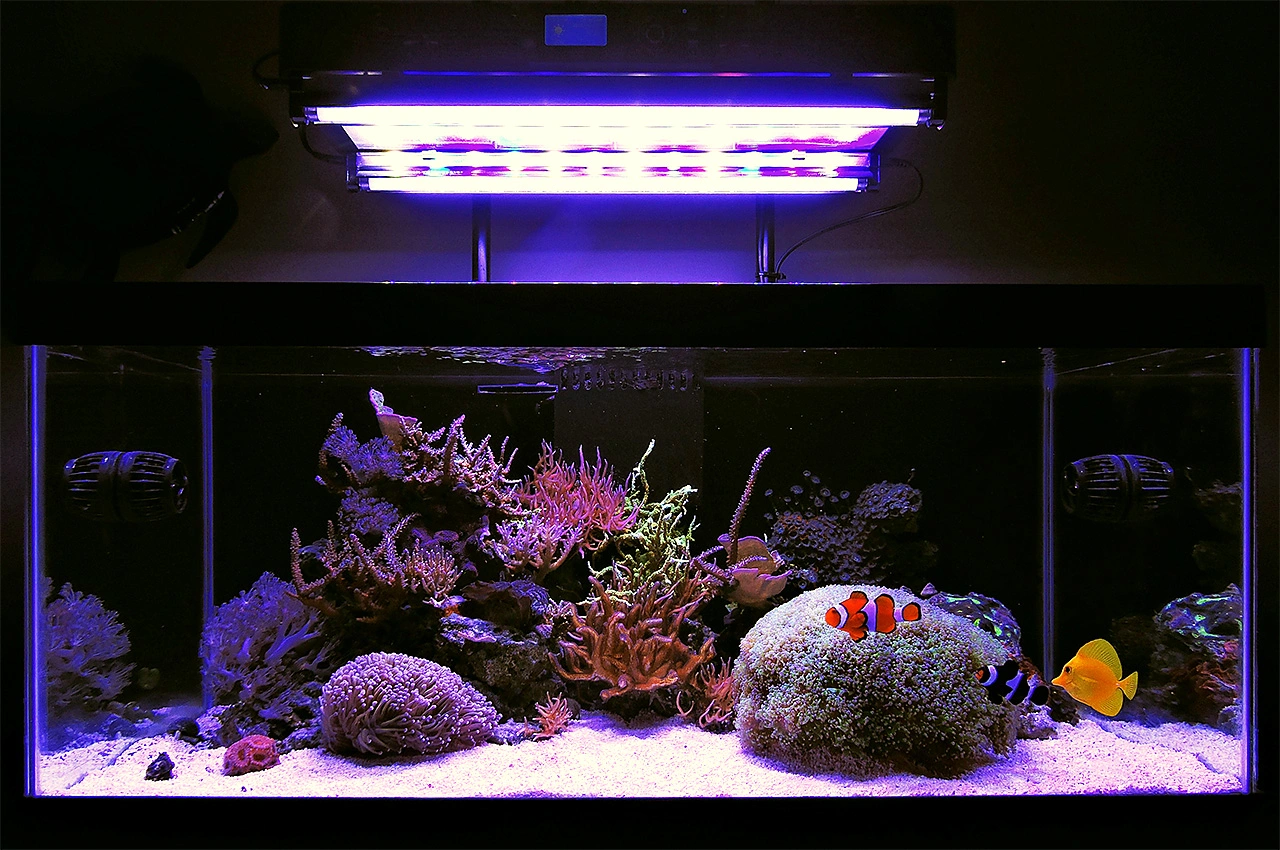Stunning 40-Gallon Reef Tank – GHill762's TOTM | NanoReef

Tank Specifications
Volume: 40 Gallons / 151 Liters
Dimensions (L × W × H):
36.0" ×
18.0" ×
17.0"
91.4cm ×
45.7cm ×
43.2cm
Equipment List
No equipment information available
Frequently Asked Questions
How do I build a DIY aquarium stand?
To build a DIY aquarium stand, you'll need 2x4 lumber and plywood. Start by framing the stand with the 2x4s, ensuring it matches the dimensions of your aquarium. Use a drill and circular saw for accuracy. Once the frame is built, attach the plywood to create the top surface. Make sure to reinforce corners and use screws for stability.
What kind of lighting is recommended for coral growth?
For coral growth, a combination of LED lighting and T5 HO (High Output) fluorescent lights, like the Reef Breeders Photon along with ATI Coral Plus bulbs, is effective. The LEDs provide intense light needed for photosynthesis, while T5s can enhance coral coloration and growth by providing a broader spectrum.
How do I set up a sump for my reef tank?
To set up a sump, choose a tank that fits underneath your main display tank, like a 20-gallon tank. Install acrylic baffles to create sections: a drain chamber for water from the display, a skimmer section, and a return section. Use a filter sock holder for passive filtration. Ensure the design allows for proper water flow and space for equipment.
How often should I perform water changes, and how much water should I change?
It's recommended to perform water changes weekly, changing about 20% of your tank water, which would be approximately eight gallons for a 40-gallon tank. Use RO/DI water mixed with appropriate salt mix, such as Instant Ocean Reef Crystals.
What is the best way to maintain water parameters in a reef tank?
To maintain water parameters, perform regular water changes, use a good quality salt mix that matches the desired parameters, and manually dose supplements such as calcium and alkalinity, like Brightwell Aquatics Reef Code A & B, weekly. Monitor levels by testing only when abnormalities are suspected.
How do I effectively clean the algae from the glass?
To keep the glass clean, use a magnetic cleaner every 2-3 days to remove algae easily. If left too long, use a razor blade to scrape off stubborn algae, but be careful not to scratch the glass.
What should I feed my reef tank fish and coral?
Feed your fish a mix of flake food, pellets, freeze-dried options, nori sheets, and occasionally frozen foods like Rod's. Ensure to have a varied diet to meet their nutritional needs while avoiding overfeeding.
How can I manage dosing in a low-maintenance reef tank?
In a low-maintenance setup, you can dose two or three times a week as needed without a strict schedule. Focus on observing your corals and tank condition to gauge dosing requirements rather than following a rigid routine.